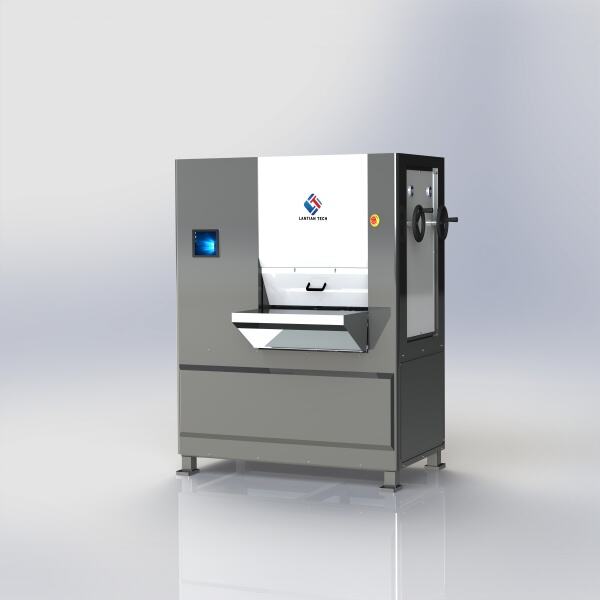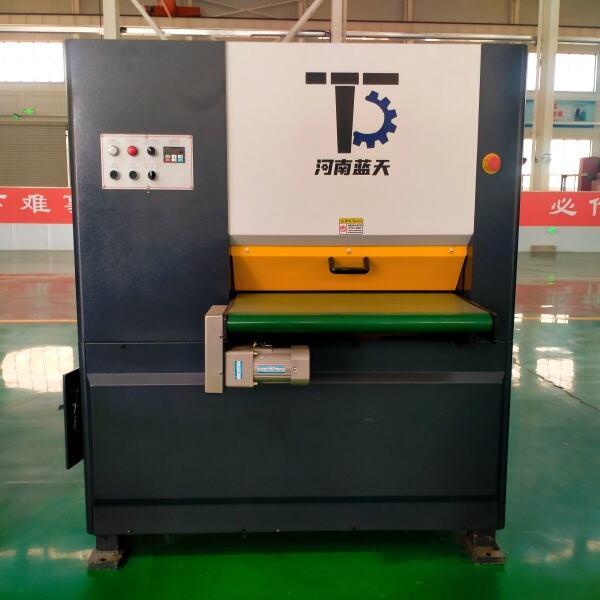The Evolution of Steel Processing Technology in Modern Construction
The construction industry has witnessed remarkable technological advancements in recent years, with hydraulic leveling machines emerging as a cornerstone of efficient steel processing. These sophisticated machines have revolutionized how construction companies handle and prepare steel materials, offering unprecedented precision and productivity improvements that were unimaginable just decades ago.
In today's competitive construction landscape, the adoption of hydraulic leveling machines has become increasingly widespread, driven by their ability to deliver superior results while minimizing operational costs. As construction projects grow in complexity and scale, these machines have proven instrumental in meeting stringent quality requirements and tight project deadlines.
Core Benefits of Hydraulic Leveling Technology
Enhanced Precision and Accuracy
Hydraulic leveling machines excel in delivering consistently flat and precise steel surfaces, achieving tolerances that manual methods simply cannot match. The advanced hydraulic systems maintain constant pressure and adjust automatically to material variations, ensuring uniform flatness across entire steel sheets. This precision is particularly crucial for projects requiring exact specifications, such as high-rise buildings and infrastructure developments.
The technology employs sophisticated sensors and control systems that continuously monitor and adjust the leveling process in real-time. This automated precision not only improves the final product quality but also significantly reduces the risk of human error in the steel processing workflow.
Increased Production Efficiency
One of the most compelling advantages of hydraulic leveling machines is their ability to process large volumes of steel quickly and efficiently. These machines can handle various steel grades and thicknesses without requiring frequent adjustments or downtime. The high-speed processing capabilities translate directly into improved project timelines and reduced labor costs.
Modern hydraulic leveling machines feature advanced automation systems that enable continuous operation with minimal operator intervention. This automation not only boosts productivity but also ensures consistent quality across long production runs, making them ideal for large-scale construction projects.
Technical Innovations in Modern Hydraulic Leveling
Advanced Control Systems
Contemporary hydraulic leveling machines incorporate sophisticated control systems that optimize the leveling process based on material properties and desired outcomes. These systems utilize advanced algorithms to calculate the precise force needed for different steel grades and thicknesses, ensuring optimal results while minimizing energy consumption and wear on machine components.
The integration of smart controls allows operators to store and recall processing parameters for different material types, significantly reducing setup times and ensuring consistency across multiple production runs. This level of control and repeatability is particularly valuable for construction projects requiring standardized steel components.
Material Handling Innovations
Modern hydraulic leveling machines feature innovative material handling systems that facilitate smooth steel sheet flow through the processing line. Advanced roller designs and precise tension control mechanisms prevent material damage while ensuring optimal leveling results. These improvements have significantly reduced material waste and improved overall operational efficiency.
The latest machines also incorporate safety features that protect both operators and materials during the processing cycle. Automated emergency stops and intelligent material tracking systems help prevent accidents and minimize the risk of damage to valuable construction materials.

Environmental and Economic Considerations
Sustainability Advantages
Hydraulic leveling machines contribute to environmental sustainability in construction steel processing through reduced energy consumption and minimal waste generation. The precise control systems ensure optimal use of resources, while the ability to process materials correctly the first time minimizes the need for rework and reduces material waste.
Additionally, modern hydraulic systems are designed with eco-friendly hydraulic fluids and energy-efficient components, aligning with growing environmental regulations and corporate sustainability goals in the construction industry.
Long-term Cost Benefits
While the initial investment in hydraulic leveling machines may be substantial, the long-term economic benefits are compelling. These machines offer reduced operating costs through lower labor requirements, improved energy efficiency, and decreased material waste. The high precision and reliability also result in fewer quality-related issues and warranty claims.
The durability and longevity of modern hydraulic leveling machines, combined with their ability to handle diverse steel processing requirements, make them a sound investment for construction companies looking to enhance their capabilities and competitiveness.
Future Trends in Hydraulic Leveling Technology
Digital Integration and Industry 4.0
The future of hydraulic leveling machines is closely tied to digital transformation and Industry 4.0 principles. Manufacturers are incorporating IoT sensors, real-time monitoring systems, and predictive maintenance capabilities to further enhance machine performance and reliability. These advancements enable proactive maintenance scheduling and remote monitoring of processing operations.
Integration with digital twin technology and cloud-based analytics platforms is enabling more sophisticated process optimization and quality control. These innovations are helping construction companies achieve higher levels of efficiency and product consistency.
Emerging Applications
As construction techniques evolve, hydraulic leveling machines are finding new applications beyond traditional steel processing. Advanced materials and composite structures require precise leveling capabilities that these machines can provide. The technology continues to adapt to meet the changing needs of modern construction projects.
Research and development efforts are focused on expanding the capabilities of hydraulic leveling machines to handle increasingly complex materials and specifications, ensuring their relevance in future construction applications.
Frequently Asked Questions
How do hydraulic leveling machines improve steel quality?
Hydraulic leveling machines enhance steel quality by applying precise, controlled pressure to eliminate flatness defects and internal stresses. The process ensures uniform material properties and superior surface finish, resulting in construction steel that meets or exceeds industry standards.
What maintenance is required for hydraulic leveling machines?
Regular maintenance includes hydraulic fluid checks, roller inspection, alignment verification, and control system calibration. Modern machines feature predictive maintenance systems that help identify potential issues before they impact production, minimizing unexpected downtime.
Can hydraulic leveling machines process different steel grades?
Yes, hydraulic leveling machines are designed to handle a wide range of steel grades and thicknesses. Advanced control systems allow operators to adjust processing parameters to suit specific material requirements, ensuring optimal results across different steel specifications.
What are the space requirements for hydraulic leveling equipment?
Space requirements vary depending on the machine model and processing capacity. Modern designs emphasize compact footprints while maintaining high productivity. Manufacturers typically provide detailed specifications to help facilities plan for proper installation and operation.

